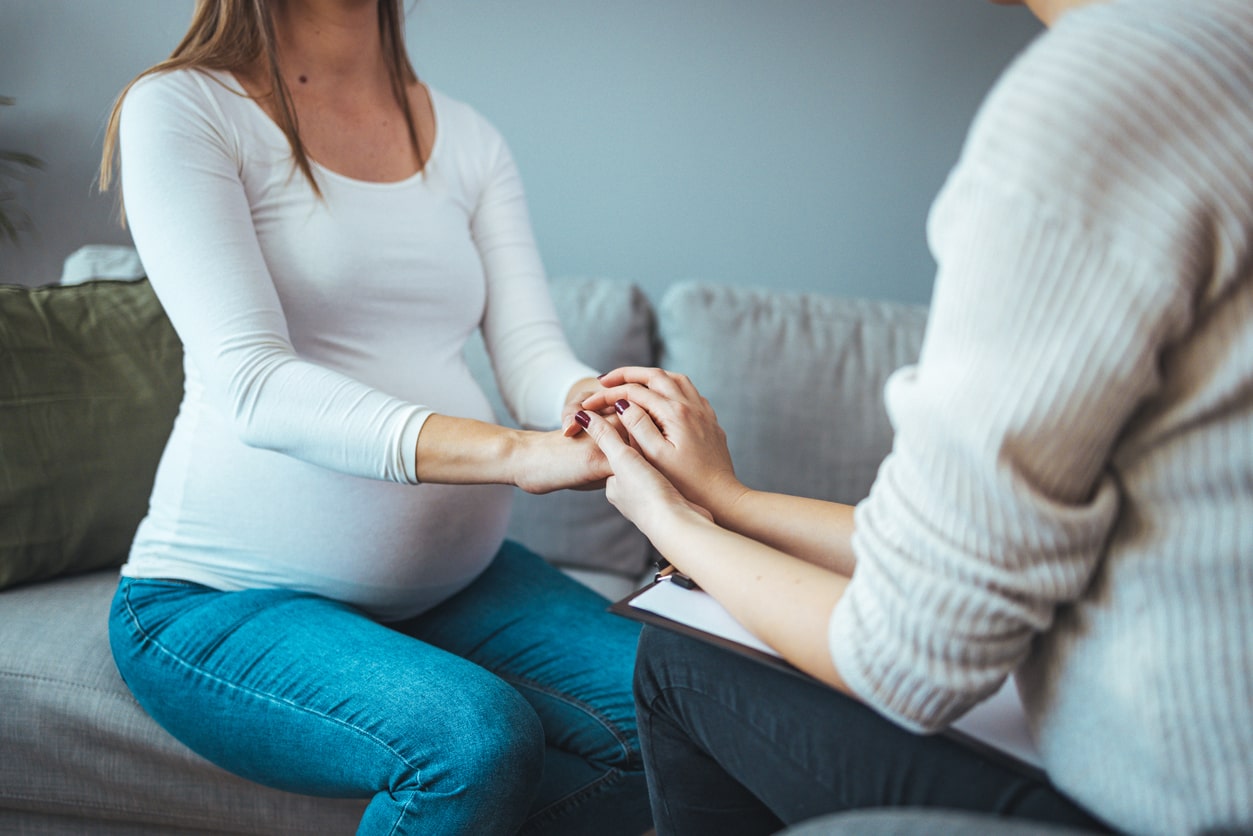Endometriosis is a common health condition in women. It is caused by tissue similar to the lining of the uterus growing outside the uterus. This tissue can cause painful symptoms and can lead to infertility. Although it may seem impossible for those with endometriosis, options are available for those who want to become pregnant. Let’s look at what you need to know about pregnancy and endometriosis.
Table of contents
Treating the Pain of Endometriosis Before Getting Pregnant
When it comes to getting pregnant with endometriosis, one of the first steps should be controlling your pain. The pain associated with endometriosis can make it difficult for some women to conceive, as intercourse becomes too uncomfortable or even dangerous for many patients. It is important to discuss treatment options with your doctor before attempting to get pregnant. Depending on your symptoms, these treatments could range from oral or topical medications, intrauterine devices (IUDs), hormone therapy, and, ultimately, surgery.
Options for Getting Pregnant With Endometriosis
Once your severe pain is under control, you can consider potential fertility treatments to become pregnant. In some cases, simply taking hormone therapies such as Clomid can be enough to help induce ovulation and conception. If this does not work, more invasive techniques such as IUI or IVF (in vitro fertilization) may be used. During IVF, eggs are collected from the woman’s body and combined with sperm in a laboratory dish before being implanted into her uterus. IVF gives doctors greater control over the process than traditional methods of conception. It has a high chance of success because, in this method, you bypass any blockages in the reproductive organs. But pregnancy is still not guaranteed.
Managing Your Symptoms During Pregnancy
Once pregnant, you must manage your symptoms carefully to ensure healthy delivery and minimize any risks associated with endometriosis during childbirth. Women who have endometriosis should speak with their doctor regularly throughout their pregnancy so they can monitor any changes in symptoms or side effects that occur due to hormonal changes within the body during pregnancy. Additionally, it is essential that women who have had fertility treatments closely follow their doctor’s instructions regarding diet and exercise.
For many women suffering from endometriosis, getting pregnant can seem impossible—but this doesn’t have to be true! By speaking with an expert about endometriosis treatment options and following any instructions during pregnancy, women with endometriosis might be able to successfully conceive and carry a baby full-term. Ultimately, becoming pregnant and delivering a healthy baby despite having endometriosis is possible but might require extra steps and close monitoring for everything to go smoothly!




